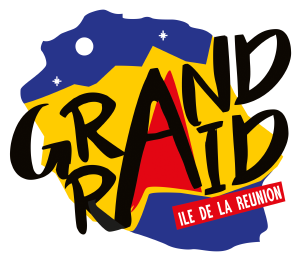The race
Keeping the morale up :
To complete the Grand Raid one must combine mental and physical capacities. Both vary considerably and unexpectedly during the race. There are several reasons for that: dehydration, hypoglycemia, tiredness, cold and even loneliness.
Drink regularly, both sweetened and salted drinks (soup). Eat varied food: energy bars but also pasta or rice. Stop, stretch, change into warm and dry clothing. Walking in company also helps and chance encounters are also part of the Grand Raid experience.
Anticipate your tiredness! Take advantage of the assistance provided by the Organization: it is better to sleep on camp beds at Cilaos than wrapped up in a safety blanket in Mafate.
Once fed, washed and rested, too many Raiders regret having surrendered their bibs !Too many do not take time to rest before losing strength and time in Mafate and pay for it later!
Equipment :
- Rucksack: small size, with no more than 4 to 5kg inside.
- Water bottle: 1.5l minimum.
- Cap to protect the neck
- Trail or jogger type shoes, one size bigger than usual, worn for at least one month before the race.
- Woolen or cotton socks, with Vaseline or talcum powder to protect the feet. Have spare socks and shoes in the bag or given to your personal assistance.
Remember that in case of conflict between sock or shoe and the foot, the later is always the loser! Blisters tend to induce knee or ankle tendinitis.
- Wear any type of shorts you are used to and never try anything new on the day of the race.
- Don’t forget sunspecs, aspirin, ointment, bandages, Vaseline, and your usual medicine if any.
- A safety blanket with whistle.
- A torch with spare batteries and bulbs.
- A pair of spare specs ( in case you break one!)
- Toilet paper : dehydration and drinking too much sweetened drinks frequently lead to diarrhea.
Feeding and drinking :
When running or walking briskly, one burns up about 1 calorie/km/kg.
So for a competitor who weighs 74kg and carries a 6kg rucksack (total 80kg) the total burn out will be: 80x160kmx1calorie= 12800calories.
If one drinks between 1l and 1,5 l per 10km, the total water consumption should be between 16 and 24 liters.
It is essential to eat and drink regularly, before feeling thirsty ( a feeling which occurs only when 0.5% to 1% of the bodyweight has already been lost due to dehydration!) or hungry (risk of hypoglycemia).
Nibble every one or two hours: bread, dried fruit (keep energy bars for whenever you feel done!). Keep them within easy reach (waist pouch for instance).
Also keep handy a small water bottle with an energy drink ( coke) in case of extreme exhaustion!
Drink as you breathe, from your camel back and fill it up at each refreshment point (The Organization might have difficulties providing water everywhere).
Here is a simple recipe for an energy drink: to 1l of water, add 4 spoonful of sugar and 1gramme of salt. Add your own flavoring if you like any. Drink enough (0.75 to 1l pet hour!) to sweat and urinate (at least 3 to 4 times a day).
Sweating and urinating are the only means to eliminate the toxic heat produced by the muscles (muscles produce 80% heat for only 20% energy!).
Change of clothes :
Change your T Shirt twice a day, socks as often as needed and shorts once. Keep a K Way, a wooly, even light trousers for the night.
Remember to take advantage of the possibility of giving assistance bags to the Organization.
Stretching every 2 hours and massages :
Sitting on the ground with outstretched legs try and touch your ankles with both hands. Resting against a tree trunk, bring up each foot to your bottom with your hand. Repeat 5 times.
Back to back with your partner, holding by the arms, let yourself be carried by your partner when he/she leans forward.
Get your legs massaged twice a day. The organization provides physiotherapists on à few points.
Remove your shoes whenever you stop for some time in order to dry your feet. Remove any dirt you might find in your socks.




